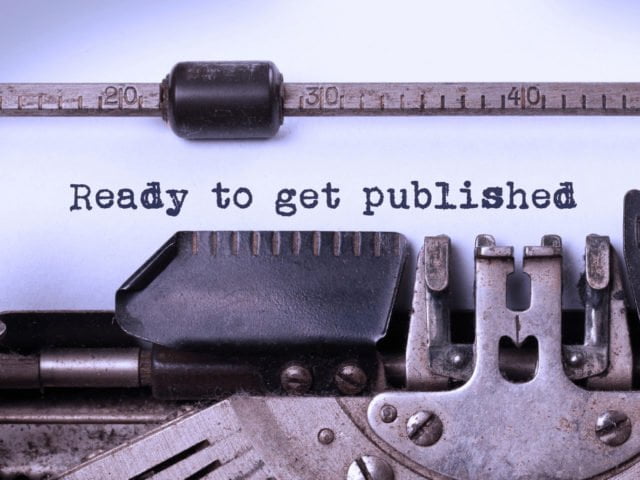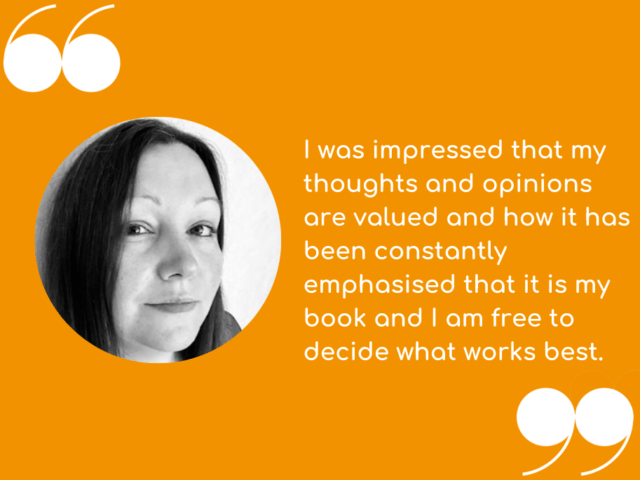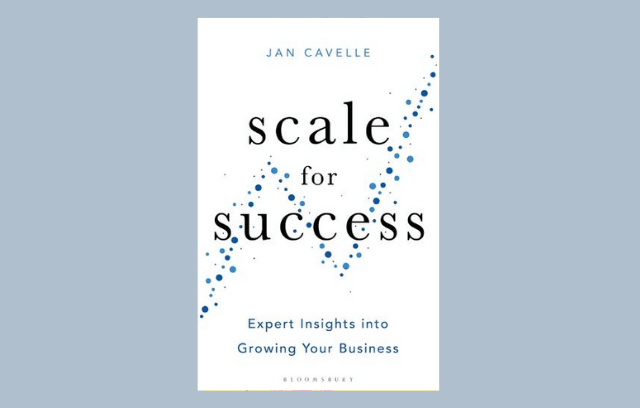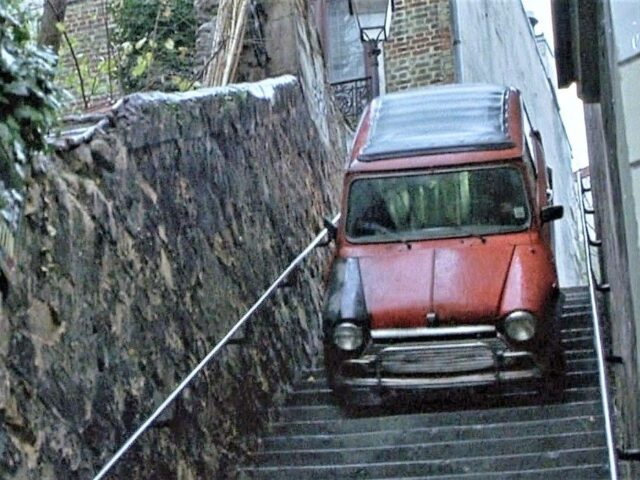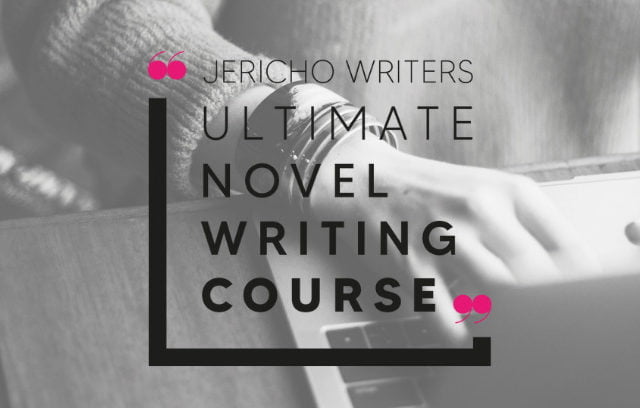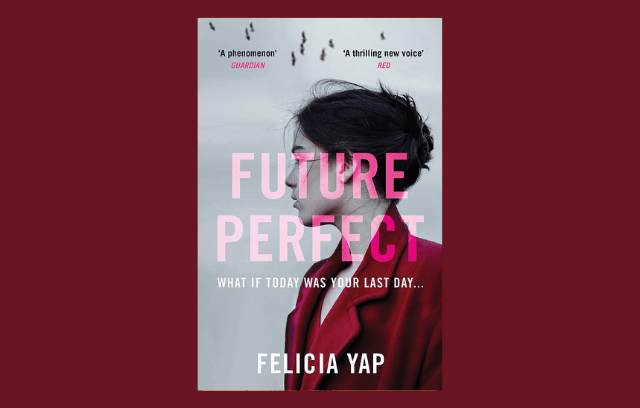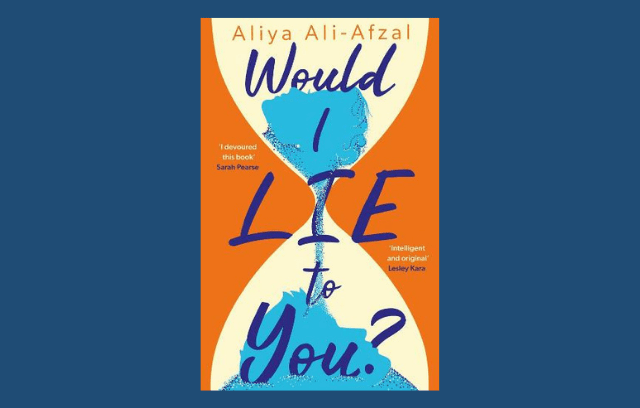Ever been to a bookstore and wondered what all the little images on the book spines mean? All those H\'s, penguins and sowers lining the shelves? Well, they are the logos of the publishing companies who have published that book.
Take a look at the rows of books in any bookstore and you will most probably be looking at the emblems for the Big 5 publishers and their many imprints, as well as a smattering of independent (indie) publishers.
With so many amazing publishing houses out there, the perfect home for you book may well be out there, but how do you know where to look, and who are the most reputable?
In this article we will be looking at the very best book publishers, how publishing companies work, and how to get published by a traditional publishing house.
The publishing industry can be a little tricky to understand, but by the end of this article you will be armed with all the knowledge you need when it comes to choosing the best book publishing companies for your work.
How Do You Search For A Publisher?
Finding a book publisher can be hard, especially if you\'re hoping to be traditionally published by some of the top publishers in the business. Where do you begin, and what information is important for you to know before you start submitting your manuscript to some of the largest book publishers? Is there anything to be said for self publishing, and what types of publishing should you avoid?
Do I Need A Literary Agent?
Yes, you will most likely need to be represented by a literary agent before you (via your agent) can start submitting to bigger traditional publishers. Nevertheless, there’s no harm in window shopping; it might even provide you with a focal point if you are still working on getting an agent.
For more information on how to find a literary agent, read more here.
Where To Start
If you’re feeling overwhelmed by the number of book publishers out there, I’ll be listing the top five biggest publishing houses, some of the best educational publishers and those who publish children’s books, as well as some of my personal favourite independent book publishers.Read on to discover the very best publishers, covering all book genres across the globe.
The Big Five Book Publishers
While aiming high can be daunting to some authors, literary agents will often wish to submit your manuscript to the top publishing companies first. After all, not only do they have the most power and influence, but they also know what they\'re doing - most of them have been publishing books for over a hundred years!
Who Are The Big Five?
The biggest and most successful traditional publishers in the world are often referred to as \'The Big Five\'. So I will be starting with them.
These are the five powerhouse trade publishing houses which are most well known and widely recognised. Within them you will find many other recognised imprints (publishing houses owned by them) whose logos appear on the spine on the book.
Let’s take a look at them in more detail.
Simon & Schuster
Simon & Schuster is where we begin our big five journey, as this publishing company holds an annual revenue of $830 million. They have over 35 imprints, including notable ones such as Howard Books, Scribner, and Touchstone, and they release over 2,000 books a year! Some of their biggest titles as of late are Salt, Fat, Acid, Heat by Samin Nosrat and The Institute by Stephen King.
Founded in 1924, Simon & Schuster remains a prominent publisher today, publishing a variety of genres along with big names such as renown authors F. Scott Fitzgerald, Jodi Picoult and Philippa Gregory.
They also offer many opportunities for those wanting to pursue a career in publishing and are one of the biggest names in the industry to work.
HarperCollins
With an annual revenue of $1.5 billion, HarperCollins has no shortage of good books and authors.
Their notable imprints include Avon Romance, Harlequin Enterprises, Harper, and William Morrow, and their titles range broadly. Some of the top books as of late are Girl, Stop Apologizing by Rachel Hollis and The Last Romantics by Tara Conklin.
Authors published originally by Harper include Mark Twain, the Brontë sisters, H. G. Wells and Agatha Christie. A book deal from this giant will most certainly help with book sales!
With over 100 imprints, this publishing powerhouse also offers a great opportunity to learn about the industry from the best.
Macmillan Publishers
Established in 1843, Macmillan Publishers is still going strong.
With $1.4 billion in annual revenue, there are many publishing routes and imprints available through them, namely Farrar, Straus and Giroux, Picador, St Martin\'s Press, and Thomas Dunne Books.
Some of their biggest titles from the recent past that you may have heard of include The Great Alone by Kristin Hannah and Me by Elton John.
With an eclectic list of authors under its belt (from W B Yeats to Leigh Bardugo), and a global market with countless possible genres to publish under, you’d be wise to consider them an ideal place for your book to end up.
Penguin Random House
Everyone recognises that little penguin on book spines in bookstores, and everyone is familiar with the orange Penguin Classics books, but what else do you know about this iconic publisher?
With over 15,000 books published a year, not only is Penguin Random House one of the top five, it may well be the top of the top five.
Their annual revenue exceeds $3.3 billion, and they have countless notable imprints such as Knopf Doubleday, Crown Publishing, and Viking Press. They also have many famous authors under their wing, including books like The Testaments by Margaret Atwood, and The Guardians by John Grisham.
As of 2021, Penguin Random House employs approximately 10,000 people globally and has published 15,000 titles annually under its 250 divisions and imprints.
Hachette Livre
Looking for a European based publisher with more published books a year than Penguin? Then take a look at the Hachette book group.
Hachette Livre has an annual revenue of $2.7 billion and nearly 200 imprints. Some of these include Grand Central Publishing, Little, Brown and Company, Headline, and Mulholland Books.
Their biggest titles in the recent past include Talking to Strangers by Malcolm Gladwell and Little Weirds by Jenny Slate. they have also published names such as James Patterson, Martina Cole, Donna Tartt, and Celeste Ng.
Growing steadily since their merger in 1992, Hachette Livre has a lot to offer both you and your book.
Best Educational Book Publishers
Looking for a reliable and quality educational book publisher, or someone who specialises in nonfiction titles?
This can be more difficult than you think, but thankfully I’m here to shorten the list for you. These publishers are looking specifically for educational books, quality hardback textbooks and the like.
This won\'t be helpful if you\'re looking to get your fictional manuscript published, but if it\'s educational materials you write, then read on!
Bertelsmann Education Group
Bertelsmann is a media, services and education company that operates in about 50 countries around the world. The online education and service offerings are primarily in the healthcare and technology sectors, as well as in higher education. With an annual revenue of around $300 million, this group has no shortage of educational texts, resources, and reliable online connections.
Scholastic
I can’t recall how many Scholastic book fairs I went to as a child. Perhaps you went to some as well, given that Scholastic is both an educational publisher and a popular children’s publisher.
Their book sales are always consistent and their annual revenue is roughly $1.7 billion. Their notable imprints include Arthur A. Levine, Klutz Press, and Orchard Books. While their educational books are extremely popular for grades K-12, their YA fiction remains the most popular (no doubt you’ve heard of Harry Potter and The Hunger Games, right?).
Pearson Education
Have you ever used DuoLingo for your language learning needs? Did you know that Pearson Education has recently partnered with them?
There’s a lot of other notable mentions surrounding Pearson, such as their annual revenue of $1 billion, and their well-known imprints (Adobe Press, Heinemann, Prentice Hall, Wharton Publishing). Their most popular publications are always subject textbooks for higher education, and for good reason.
McGraw-Hill Education
One of the largest publishers in American education is Mcgraw-Hill. Their annual revenue often exceeds $1.7 billion, and they are well known for their many editions of test prep books (SAT and ACT) and elementary school math textbooks.
Their most notable imprints include Glencoe/McGraw-Hill, Macmillan/McGraw-Hill, and McGraw-Hill Higher Education, no doubt familiar to you if you’ve been involved in any American education system.
Wiley
While Wiley has a lot to offer in terms of non-educational publishing, their For Dummies series of educational books is one of their top sellers.
With an annual revenue of $1.7 billion, their various instructional titles are big hits in the publishing world. Their most notable imprints include Bloomberg Press, Capstone, Hungry Minds, and Wiley-Blackwell, and they continue to publish a large variety of titles, both educational and otherwise.
Cengage Learning
Publishing both hard cover print books and maintaining a dedicated digital library can be difficult, but Cengage learning can do it all.
From imprints that publish specifically for grades K-12 as well as books for higher education learning, Cengage is a wonderful publisher to consider. Cengage is also the owner of the National Geographic Education division, made to bring excitement to classrooms worldwide.
With an annual revenue of $1.7 billion, it’s safe to say that this publisher is one of the educational publishing powerhouses.
Houghton Mifflin Harcourt
You may have already heard of Houghton Mifflin Harcourt, or HMH for short.
This publisher specializes in different disciplines including business and economics, biography and memoirs, children’s books, cookbooks, health and wellness, and more. They make more than $1.4 billion annually, with many notable imprints: Clarion, Graphia, John Joseph Adams Books, and Sandpiper among them.
Their largest and most recent titles include elementary school textbooks in all subjects, as well as cookbooks.
Best Children’s Book Publishers
Some of the top selling books published today are for children or young adults. However, writing and publishing for children and young adults can be a lot harder than you would think!
Although young adult novels have really flown off the shelves in the last twenty years, and often offer the most variety in terms of diversity, content and audience, young adult fiction, middle grade fiction and picture books still remain one of the most competitive markets in the publishing world.
Here are some of the best choices for children’s book publishing today, and how you can reach out to them (via your literary agent, of course).
Bloomsbury
With offices around the world and prominent publishing houses in both the US and the UK, Bloomsbury Books is a top contender for children’s book publishing (they also publish a vast array of nonfiction books including political nonfiction).
Established in 1986, Bloomsbury has many popular children’s book authors across every age group. With an annual revenue of $150 million, Bloomsbury USA Books for Young Readers was established in 2002. Their YA fiction has grown increasingly popular, their authors often topping the New York Times Bestseller list.
If they\'re good enough for the likes of J K Rowling, Sarah J Maas, and Samantha Shannon, then I\'m sure your book will be more than happy in this home.
Ladybird Books
It\'s impossible for anyone over the age of thirty to not have fond memories of their first Ladybird hardback book as a child. Who doesn\'t remember their favourite fairytales presented in that iconic little book with a plump ladybird on the cover?
UK-based and another division of the Penguin Group, Ladybird books is perfect if you’ve got a bedtime story to tell. Their lineup of children’s books is primarily geared toward younger audiences, from toddlers to roughly age ten. They have many award winning series published under their name, including many Peppa Pig books, as well as an educational division with their famous Peter and Jane reading guides and other titles where they have teamed up with names such as BBC Earth.
Their annual revenue is roughly $17 million.
Chronicle Books
San Francisco-based favourite Chronicle Books, with a $10 million revenue, has a wonderful eye for the unique and aesthetic storyteller.
Their children’s books are beloved and unique, and this small independent publisher receives more than 1,000 submissions a month for their young adult department alone! They publish most type of children’s books including activity books, art books, board books, picture books, chapter books, middle grade, games, and gift and stationery items.
Hogs Back Books
Hogs Back Books publishes fiction books aimed at children up to 10, as well as early readers for children up to 14, and teenage fiction.
Amongst its most notable titles, Boris the Boastful Frog was recommended by The Telegraph in 2013 as one of the best books of the year for young children. They are a small family-owned and independent publisher, and the small selection that they choose to publish is beautiful and heartfelt.
Arbordale Publishing
With just about $1 million in annual income, Arbordale Publishing isn’t the largest in US children’s publishing. However, their books are aligned to Common Core, Next Generation Science Standards (NGSS), as well as state education standards.
Arbordale books are vetted by experts and professionals from a variety of organizations including NASA, JPL, Project Learning Tree, USFWS, SeaWorld, the Cherokee Nation and others. They publish an average of 20 books per year.
Immedium
Based in San Francisco, CA, Immedium is influenced by an increasingly diverse world. While they are a small company and make an average of $150k in annual revenue, they have wonderful illustrations and ideas for children’s books.
Immedium publishes subjects range from eye-catching children’s books to contemporary non-fiction, including commentaries on art, popular culture, and multicultural issues.
Kids Can Press
Kids Can Press is a Canadian-owned publisher of children’s books, with a list of over 500 picture books, non-fiction and fiction titles for toddlers to young adults and an estimated annual revenue of over $10 million.
The Kids Can Press list includes characters such as Franklin the Turtle—the single most successful publishing franchise in the history of Canadian publishing, which has sold over 65 million books in over 30 languages around the world.
Quirk Books
Looking for a smaller publishing agency for your unique and captivating children’s book?
Publishing only around 25 books a year, Quirk Books is based in Philadelphia and is searching for the most original, cool, and fun ideas out there. Is your book creative enough for Quirk? It’s one of my favourite publishing companies, having taken the helm on series such as the Miss Peregrine anthology by Ransom Riggs, which has won many literary awards.
August House Publishers
A more traditional publishing company, August House Publishers are seeking children’s book authors committed to folktales, diverse and memorable. They enjoy stories from many diverse backgrounds, as well as stories that work well as oral tales, stories meant to be passed on from generation to generation. They also have a soft spot for scary stories and stories that can be used in a classroom environment.
With an annual revenue of roughly $10 million, they produce beautiful children’s books.
ABDO Publishing
With almost $50 million a year in revenue ABDO is a formidable children’s book publisher.
Based in Edina, Minnesota, this family-owned book publishing company specializes in non-fiction books for the school library market. From engaging nonfiction to illustrated titles, ABDO has both educational and fantastical book titles for children of all ages.
Best Independent Book Publishers
Are you looking for a smaller company to publish your book? This is a better option if you are still seeking a traditional publishing company, but want to work with them directly
There are many benefits of working with an independent book publishing company. Smaller companies often accept unsolicited submissions (ie you don\'t need to have a literary agent and can approach them yourself), especially if the submission is more unique and experimental in nature.
Plus, independent publishers often offer a more hands-on approach for new and inexperienced authors. the downside is that their budgets and reach may not be as large as that of the big five, so you are less likely to get an astronomical advance or become an international bestseller. But it\'s not impossible!
Let’s check out some of the best in the business...
Autumn House Press
Autumn House Press is an independent, non-profit literary publishing company based in Pittsburgh, Pennsylvania that was founded in 1998. They began as a publishing company strictly for poetry, but they have since expanded to include fiction and nonfiction.
Autumn House Press’s especially notable titles include Anxious Attachments by Beth Alvarado and Not Dead Yet and Other Stories by Hadley Moore.
Tupelo Press
Tupelo Press is an American not-for-profit literary press founded in 1999. It produced its first titles in 2001, publishing poetry, fiction and nonfiction. Tupelo Press publishes the winners of its national poetry competitions, as well as manuscripts accepted through general submission. Awards given by Tupelo Press include the Dorset Prize, the Berkshire Prize for a First or Second Book of Poetry, and the Snowbound Series Chapbook Award. They have a lot to offer as an independent book publisher.
Influx Press
Hackney-based London independent publisher, Influx Press, was founded in 2011. They focus on site-specific literature closely linked to precise places across the UK and beyond.
They have printed unique books such as How Pale the Winter Has Made Us by Adam Scovell and A Door Behind a Door by Yelena Moskovich.
Fledgling Press
Fledgling is an exciting and innovative publisher founded in Edingburgh, Scotland. Their focus is primarily on Scottish talent, but they still consider writers from other parts of the world.
Founded in 2000, Fledgling Press have have launched the writing careers of award winning authors including Helen Grant, Philip Caveney and Alex Nye.
Graywolf Press
Graywolf Press is an independent, non-profit publisher located in Minneapolis, Minnesota. They publish fiction, non-fiction, and poetry. Graywolf Press currently publishes about 27 books a year, including the Graywolf Press Nonfiction Prize winner, the recipient of the Emily Dickinson First Book Award, and several translations supported by the Lannan Foundation. Their published work is bold and award winning.
New Directions
New Directions was founded in 1936 and they publish about 30 new titles a year. They publish anything regarding literary fiction, poetry, memoir, nonfiction, and their annual revenue is roughly $1 million per year.
It was the first American publisher of authors including Henry Miller, Vladimir Nabokov, and Jorge Luis Borges, among others.
Tin House Books
Publisher of award-winning books of literary fiction, nonfiction, and poetry; home to a renowned workshop and seminar series; and partner of a critically acclaimed podcast, Tin House champions writing that is artful, dynamic, and original.
While they only publish about two dozen books per year, they are all astounding, and you can learn more about their small operation here.
Europa Editions
Europa Editions is an independent trade publisher based in New York. The company was founded in 2005 by the owners of the Italian press Edizioni E/O and specializes in literary fiction, mysteries, and narrative non-fiction. They have a few imprints, namely Tonga Books, and a series for mysteries known as Europa World Noir.
City Lights Publishers
Known for publishing Howl and other poems by Allen Ginsberg, City Lights Publishers is a great independent publishing option. Founded in 1955, with nearly 300 books in print, City Lights publishes cutting-edge fiction, poetry, memoirs, literary translations and books on vital social and political issues.
For over fifty years, City Lights has been a champion of progressive thinking, fighting against the forces of conservatism and censorship.
Forest Avenue Press
Forest Avenue Press, founded in 2012 in Portland, Oregon, publishes literary fiction on a joyride and the occasional memoir. While they are currently a small-scale operation, they are growing in popularity in the Pacific Northwest.
And That\'s Not All Of Them...
And that is just the tip of the iceberg when it comes to the best publishers to consider! The best thing to do, when looking at what publisher to approach or consider, is to look at the books you love or that are most similar to your own and look at who publishes them.
You may well be surprised, and they may well not even be on this list (which doesn\'t make them any less fabulous).
A Publisher For Every Writer
Writing a book and finishing it is a huge achievement in itself. Choosing whether to self-publish, look for an agent, or approach indie publishing houses yourself is the next step..and a large one.
So take your time and choose your route to publication wisely. While I hope you found a few excellent book publishers to consider from this list, do keep in mind that there are many more that are worth your consideration. And however you choose to get your book out into the world (and all options come with a list of pros and cons) they all ultimately all lead to the same thing - holding your book in your hand one day and having others enjoy your words.
Frequently Asked Questions
Who Are The Big 5 In Publishing?
The big five publishers in the world are:
Harper Collins
Simon & Schuster
Macmillan
Hachette
Penguin Random House
These five publishers make up over 90% of hardback book sales in the US and over 80% of paperbacks sold.
What Is The Most Prestigious Book Publisher?
In terms of the most established book publisher, Cambridge University Press, dating back to 1534. But in terms of revenue, iPenguin Random House generated revenues of 3.8 billion euros in 2020, up from 3.63 in the previous year.
Which Publisher Is Best For First Time Authors?
The best thing a first time author can do is find a great literary agent that specialises in whatever genre they write. Through that agent they will then have access to the very best publishers. Without an agent, you can\'t get near the Big 5!
How Do You Pick A Publisher?
To have access to the top publishers you need a literary agent, and they will know who to approach. But if you want to approach smaller publishers without an agent, or just curious as to who you\'d like publishing your book, then simply take a look at books that are similar to the one you have written and see who publishes them.










